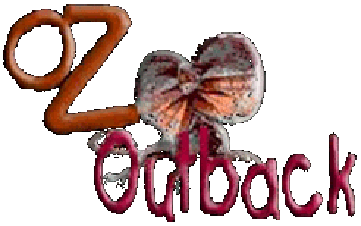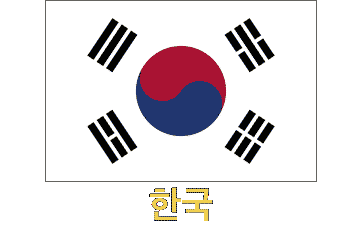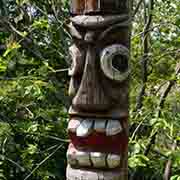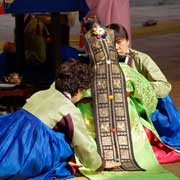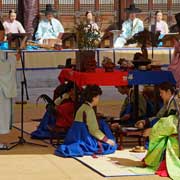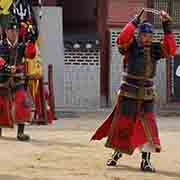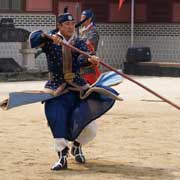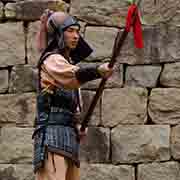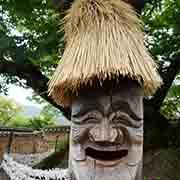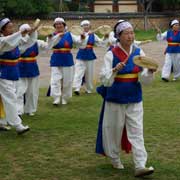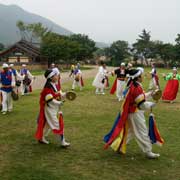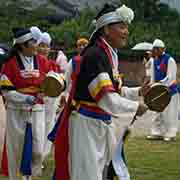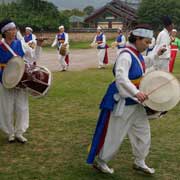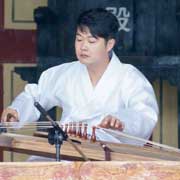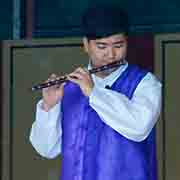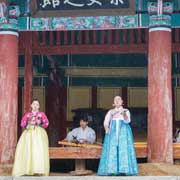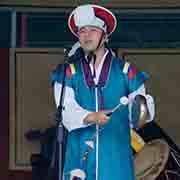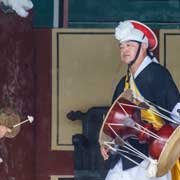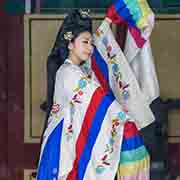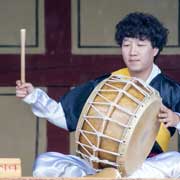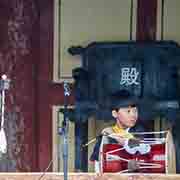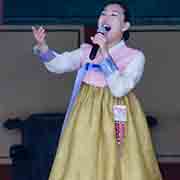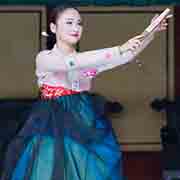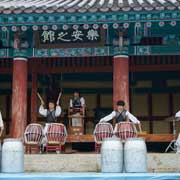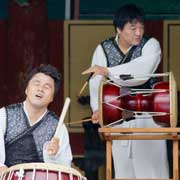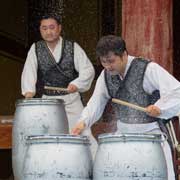Photos of Traditional Korean Culture, Korea
Traditional Culture of Korea
Traditional Culture is celebrated intensely in Korea, and many aspects of it, suppressed during the Japanese occupation in the second half of the 20th century, have seen a revival. Although maybe the beliefs associated with it are no longer firmly held, “Changsung” guardian pole, traditionally erected at the entrance to pathways of villages and temples as guardians against evil spirits and diseases, can still be found and are maintained.
you may then send it as a postcard if you wish.
Re-enactment of ancient customs can be observed on many occasions, like a traditional Korean wedding ceremony or the rituals at the palaces during the Joseon era and even earlier.
Like other similar venues, Naganeupseong Folk Village, in South Jeolla (Jeollanam-do) province, Korea’s best-preserved Joseon fortress town, showcases traditional cultural performances: a dance performance with drums and gongs, traditionally performed in farming villages to ensure and to celebrate good rice harvests; traditional music, songs, dance and “Samul nori”, traditional Korean percussion on the outdoor stage.
